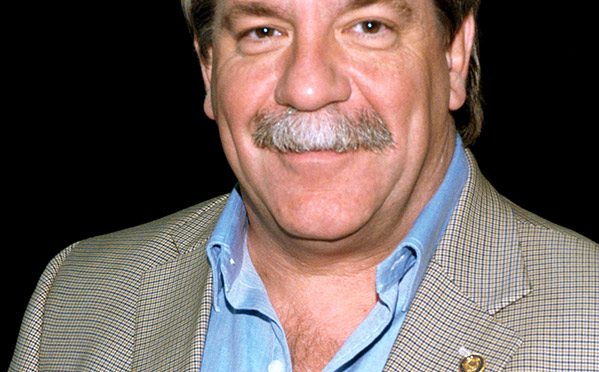An Untiring Advocate for Symphonic Musicians
When SSD Negotiator Chris Durham passed away on August 22, 2020 after a courageous battle with cancer, musicians everywhere lost a fierce advocate.
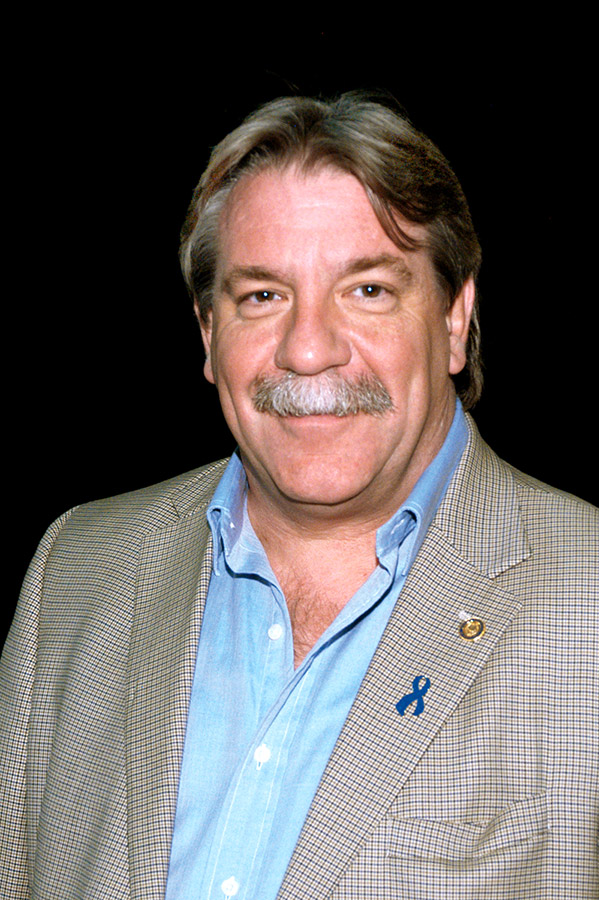
Born June 2, 1959 in Highland, Illinois, Chris began his musical career at age 4 in the first-ever Suzuki violin class in the US, under the tutelage of Dr. John Kendall at Southern Illinois University Edwardsville. After studies at the Cleveland Institute of Music, Chris took a position with the Columbus Symphony, where he worked from 1979-1991. While in Columbus, he was elected Vice President of Local 103 and chair of the orchestra committee. In 1984, Chris was a founder of the Regional Orchestra Players’ Association. In 1986, Chris led the Columbus musicians in a successful 6-month strike. From 1991 to 1994, he served as Secretary-Treasurer of Local 2-197.
Chris served symphony, opera and ballet musicians as a negotiator for the better part of 31 years and as Director of Symphonic Services from 2009-2011. His skill as a deal maker was rivaled only by his ability to find common ground with a wide range of people from all walks of life. Chris earned the trust of the musicians he represented and the respect of orchestra managers who viewed him as a tough but honorable bargaining partner. And at the end of the day, Chris knew how to set aside the conflict of bargaining and unwind, sharing a meal and drinks with musician committees, local officers and even the occasional management lawyer.
When not on the road for negotiations or conferences, Chris relished his time at home in Collinsville, Illinois, with his wife Lisa and son Jacob, who survive him. Chris loved to garden, cook for family and friends, and raise livestock, including goats, cattle, sheep, horses, and chickens.
It is impossible to overstate the significance of Chris’s contributions to improving the wages, working conditions and lives of symphonic musicians throughout the Federation. Some among those who worked closely with him throughout his career have offered the remembrances that appear below:
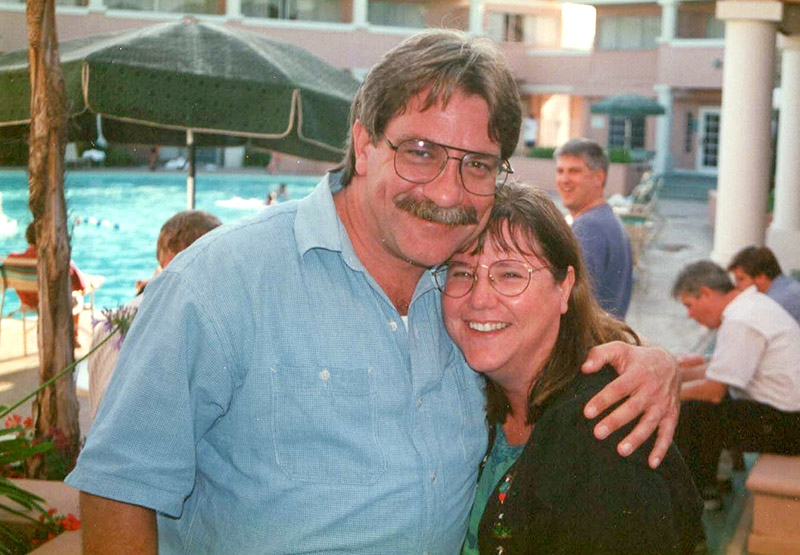
Laura Ross, ICSOM Secretary
Chris Durham and I were 15 when we played together in the World Youth Symphony at Interlochen. Thirteen years later, our paths crossed again when Chris, a Regional Orchestra Players’ Association (ROPA) Member at Large, attended the 1988 ROPA Conference—which the Nashville Symphony Musicians (that included then ROPA President, Nathan Kahn) were hosting while enduring bankruptcy and a seven-month lockout. I made lifelong friends at that conference, and one year later I was elected as Nashville’s ROPA Delegate.
Being ROPA Delegate meant serving on the orchestra’s negotiating committee; the committee—and I—were very inexperienced. By 1990, the committee was struggling, but circumstances brought Chris Durham—who was now an AFM negotiator—to Nashville to help turn us around. His suggestions, guidance, and leadership helped us find our footing, get organized, and negotiate a multi-year contract. When he was elected Secretary-Treasurer of the St. Louis Local, other negotiators took his place in the intervening years.
But he came back. Nashville’s CBA was inching along slowly, and the orchestra was itching to restore salary losses from the previous 10 years. Negotiations in 1997 were frustrating and contentious, plus Chris’s previous relationship with the Executive Director wasn’t great. The orchestra had successfully raised money as we approached the orchestra’s 50th anniversary, but the day before the contract expired, it was more of the same. He’d had enough; he was six inches from the mediator’s nose shouting, “We’re leaving!” As the mediator objected, we packed up and walked out, while Chris shouted an expletive down the hallway of the Symphony office at our Executive Director! It was quite a scene—and everyone there heard him. We had a deal four hours later.
Chris returned many more times, and negotiations were far more cordial with our current Executive Director (they had a previous bargaining history as well.) In a 10-year period Chris negotiated two contracts that, together, doubled our salary. I think even Chris was amazed at the success of that second contract! Our final negotiation with Chris was in 2013, when we were once again looking at concessions, this time because of the Schermerhorn Symphony Center.
He and I exchanged yearly birthday cards and messages—I was older by one month. Through those many decades bargaining and rewriting our contract, Chris—who had quite a devious streak—would intentionally call early in the morning (he delighted in waking me up) or on weekends, and we’d share meals in Nashville or at conferences to talk strategy. I have much to be grateful for because Chris was an amazing friend who taught me so much. The day after I found out he was sick, he called me to apologize that he hadn’t called to tell me himself. We were lucky that Lisa and Jacob were willing to share him with us, and we were blessed to have a true and dedicated colleague who gave so much more than he got back.
Mike Smith, ROPA President
It is with deep sorrow that the ROPA Executive Board marks the passing of Chris Durham, Chief Field Negotiator for Symphonic Services Division of the AFM. Chris was one of the most dedicated and active union negotiators on the staff at the AFM.
Chris was a founder of ROPA, being present at the first conference in Columbus in 1984, and served ROPA as a Member-at-Large from 1985-89. He worked as a negotiator with many ROPA orchestras through the years.
I was playing in the Columbus Symphony when Chris arrived, fresh out of school at the Cleveland Institute of Music. He was a violinist in cowboy boots, with his unmistakable attitude and swagger that let everyone know he was there, and that he was not going to put up with any unfairness or lack of respect for musicians. The orchestra at that time was operated in a very “old-school” way, with a lot of issues between the musicians and management. Many union activists were launched out of Columbus at that time who have since gone on to serve our cause on orchestra committees, negotiating committees, and even becoming union lawyers. Both Chris, and former SSD negotiator Lynn Johnson, who was also playing in the Columbus Symphony at the time, later went on to work for the AFM.
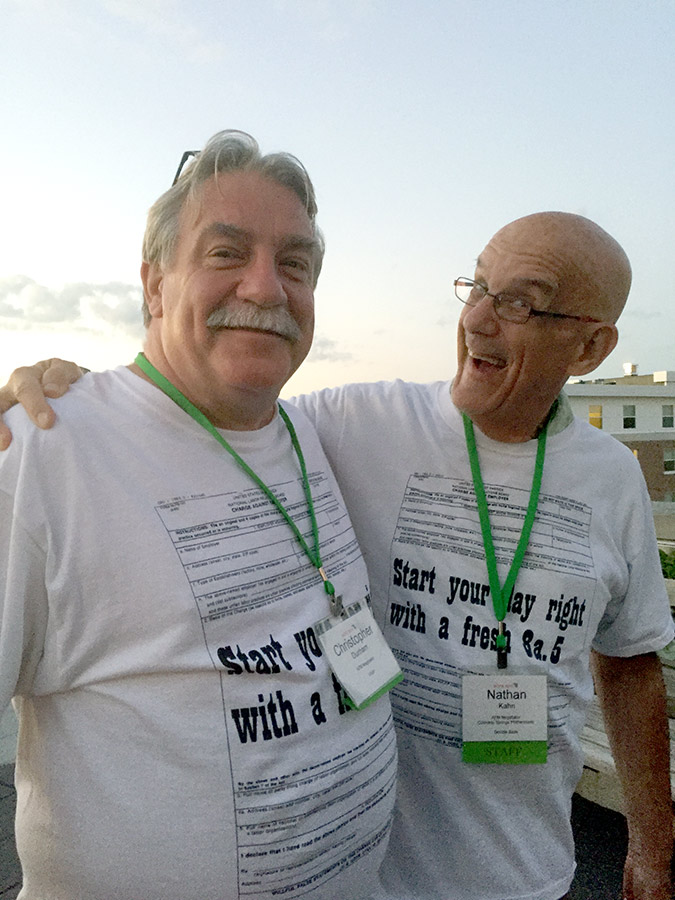
Nathan Kahn, SSD Negotiator (retired)
In 1982, shortly after I sent out a letter proposing the formation of ROPA, the first call I received was from Chris Durham, from the Columbus Symphony. He was enthusiastic about the idea of a player conference for regional orchestras, and we both were subsequently elected to the ROPA Executive Board at the first ROPA Conference in Columbus in 1984, which Chris helped organize.
We very much kept in touch after that first Columbus meeting; I recall long conversations with Chris during the Columbus Symphony’s 1986 23-week lockout for fair job security. It was a just and difficult fight that was resolved with a rather unusual peer review system. Chris was Vice-President of the Local, and Chair of the Committee.
I went to work for the AFM in 1988, and Chris joined the AFM staff shortly thereafter, in 1989. That was quite the turbulent era for orchestras; bankruptcies, concessions, and all of us on Lew Waldeck’s staff had our plates full.
Chris was a brilliant strategic fighter, but he could also sit down with a board president, find common ground and make a good deal. Everybody liked Chris; he would cuss you out and scream at you, and 10 seconds later he would be having a drink with you.
Chris was hilarious, and outrageous when necessary. I’ll never forget his wanting a free rental car upgrade at the Denver airport, but the agent wouldn’t budge. So…in his cowboy boots Chris jumped up on the top of the counter and did a Texas two-step on top of the counter until the agent relented.
Chris believed in the labor movement with religious fervor. Chris’s father was a union pipefitter, so union blood ran thick in the Durham family.
I cannot believe that he has left all of us so early, and he leaves behind his wonderful son Jacob, and his lovely wife Lisa. My deepest condolences to both of them.
Symphonic musicians have lost one of their best friends and advocates. Rest in Peace, Chris; we are all forever grateful for all that you have done.
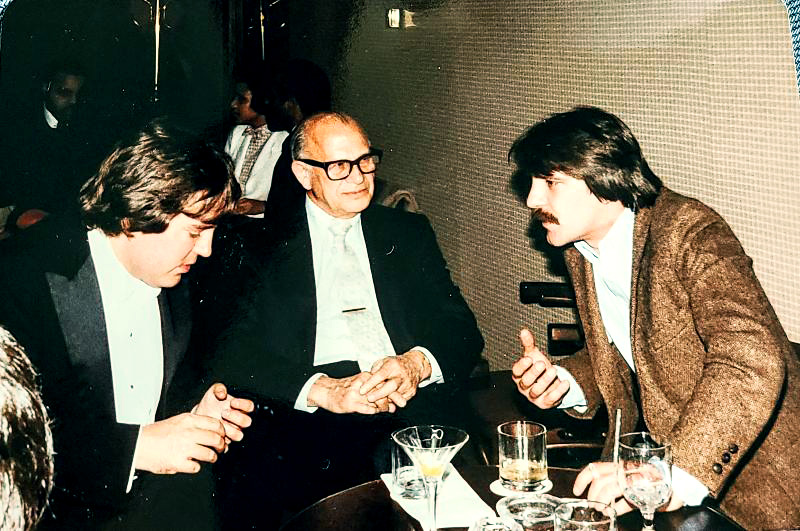
Florence Nelson, Former SSD Director and AFM Secretary-Treasurer
How does one describe the loss of Chris Durham? So many people wrote beautiful eulogies to this energetic, dedicated man who popped up in their town to represent their negotiating orchestra. Chris was forever determined to break the resolve of the unmovable forces between an intransigent management committed to spending the least amount of money while aiding a determined orchestra to continue performing music to their city.
Chris would show up in my office with no prior announcement of his arrival, plunk down in a seat, brush back his long, unruly hair and pull out a small, narrow piece of paper with chicken-scratch handwriting from his shirt pocket. Then, hour by hour, he would proceed to report on his negotiating progress from one orchestra to another. I would learn how he worked with each orchestra committee to build unity and prepare for negotiations. He would describe how he facilitated a strong binding relationship between local officers and the orchestral musicians. I would hear about the major issues that concerned the musicians as well as the financial problems that the management already publicized in the local newspaper or board meetings. It was so complicated to hear about the different concerns in each orchestra and it was mysterious to me how Chris -or Nathan Kahn – could keep the issues of one group separated from another, but they did it miraculously. I occasionally joined Chris at a difficult negotiation and would watch him sit silently, observing the interaction within the orchestra management while identifying on whom to focus. Then, when the time was right, he would transform from being calm and understanding to a furious, insulted negotiator who would not let “his” orchestra lose compensation, status, work weeks, or in the end, self-respect. He always won!
For all his hard work and hours on planes or in cars, Chris never lost his sense of humor, his pride in his ever-growing son, or his love for his wife, Lisa. He was the epitome of union pride and an exceptional gift to the symphony, opera, and ballet orchestra world. He will not be forgotten, but forever revered.
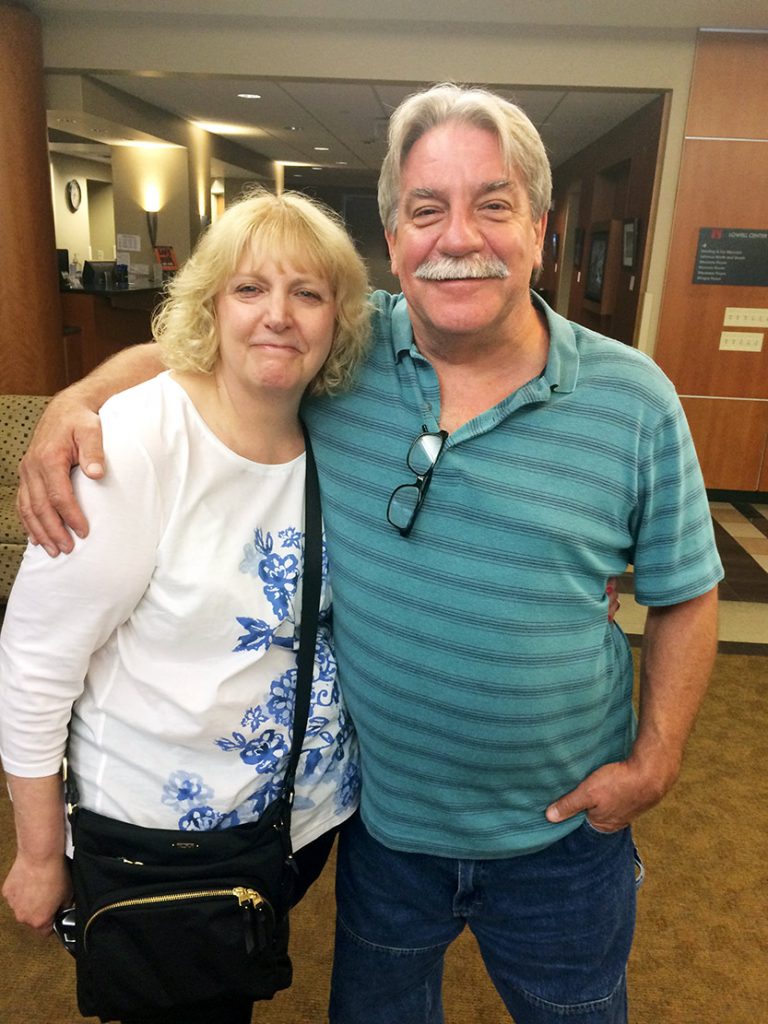
Debbie Newmark, Director of Symphonic Electronic Media
Some people are just born to be a union activist and Chris Durham was one of them. With every fiber of his being he strove to do the best job possible representing the interests of AFM musicians in the symphony, opera, ballet and theater fields. Yes, he was first a violinist and an accomplished one at that, although I often joked with him that he reeked brass player.
He crisscrossed the country, accumulating those coveted airlines miles to fight the good fight every day, and won the best contracts he could despite oftentimes encountering enormous resistance from employers and boards. He would call me regularly to discuss issues with the many orchestras he represented and after we spent time reviewing the particulars we always found time to laugh about some absurd situation happening somewhere or to trade a little gossip from the field. It was that ability to work hard and laugh hard and get the job done exceptionally well that made him so unique in our industry.
He taught me a lot even when I didn’t realize it until I found myself using those skills. I would like to think that he is now spending time with Lew Waldeck, one of his mentors and a former SSD Director, trading shop talk and having a hell of a good time!
Bob Sanders, Vice President, Local 7
Chris Durham was a force of nature. Many know how effective Chris was at the bargaining table, his creative sense of theatre, his skill crafting solutions to bridge the gap between musicians and management—his dogged opposition to unwarranted concessions! Chris was an indefatigable musicians’ advocate and this local officer’s trusted advisor. He was also my friend.
Our professional relationship got off to a rocky start. We had a massive misunderstanding, the specifics of which elude me. Whatever it was, his button got pushed, my button got pushed—it was nearly catastrophic! When the dust settled, we agreed to always get the communication straight before we let our buttons get pushed. It was “the beginning of a beautiful friendship”—which was cemented over ensuing years. My heart is heavy. I will miss him terribly. So will the AFM.
Mike Buccicone, violin, Columbus Symphony and Vice President Local 103
I met Chris in 1979 at the Columbus Symphony when we started together after a mass hiring of string players in the summer of that year. At the time the Local had no representation of the orchestra musicians on their Board. In fact, the Local 103 President was on the symphony board! There was also really no comprehensive master agreement which represented both the per-service musicians and full-time musicians. Chris and I met with some other local board members one Sunday afternoon and decided we would run a slate for local offices in the next election. Our slate was elected and Chris became vice president of Local 103 and also chair of the orchestra committee. He led the CSO Members in a 6-month strike beginning in the fall of 1986.
Chris and I always hung out together at his favorite watering hole after many rehearsals and concerts. He was very sociable and liked to have a good time. We shared a lot of common interests including living in the country on farms. When I decided to settle down Chris was best man at my wedding.
When Chris left the CSO and began working for the AFM as a symphonic negotiator I took over his position as vice president of Local 103 to the present. Even though Chris was living in the St. Louis area, we would be in contact and see each other and catch up at ICSOM Conferences or the AFM conventions. He successfully negotiated countless contracts for musicians all over the country and had to spend a great deal of time away from his home and family.
Chris was a charismatic and natural leader. He was a valuable mentor and friend to us during his time in Columbus. All of us owe a great deal to Chris for what he accomplished for the CSO and Local 103. I will always remember and miss Chris.
David Lussier, Secretary-Treasurer Emeritus, Local 8
Chris led most of Local 8’s contract negotiations beginning in 2002. He was tireless in his efforts, generous with his wisdom, and kept things in perspective with his singular sense of humor.
At the bargaining table, Chris was unflappable and used his quick wit to disarm all but the most obstinate employer representatives. He was always ready to help with contract administration and grievance/arbitration questions.
Chris’ dedication to collective action as the best way to improve workers’ lives was not limited to musicians’ concerns. It was engrained in his DNA. One case in point: after a bargaining session in 2012, he did not hesitate when asked to join a picket line with local pizza factory workers who were on strike for Union recognition.
Notwithstanding the current shut down, things are better for musicians in Milwaukee and elsewhere thanks to Chris Durham’s work. We became friends over the years, and I will miss him a great deal. May he rest in peace.
Steve Secan, former Principal Oboe, Columbus Symphony
In my observation, Chris was very good at cultivating relationships. For example, in advance of the Columbus Symphony lockout of 1986, Chris forged friendships with Fred Zenone of ICSOM, Lou Waldeck at Symphonic Services, and Lenny Leibowitz, who was to be our chief counsel. It was not an accident that Chris did this. And it may have been one of the crucial things that contributed to that labor dispute’s eventual settlement. Chris often projected the image of a street fighter, but Chris was invariably a deal maker in my experience.
Jonquil Thoms, violin, Columbus Symphony
I met Chris in 1976 when he was 17 years old at The Cleveland Institute of Music, where he was starting his undergrad degree and I was working on my Masters.
He was a people-person from the get-go … knocking on practice room doors, striking up a conversation with anyone, a breath of fresh air to all of us trying to make our way through music school.
My second year with the CSO, 1979, Chris joined the orchestra, much to my delight! It was great to have a close friend to work with. We were assigned to the same string quartet, part of the job then. Mo Jacob, who we went to CIM with as well, was the viola player, and Steve Busonik was the cellist, who I went to school with at CCM. It was like family!
Chris, only 20 at the time, was the least experienced in chamber music, but because of his great ability on the violin, quick study and communication skills, he was a dream second violinist in the quartet. I feel fortunate that he was playing next to me, listening, matching, adding special phrasing, and always having my back. I treasure the many rehearsals, recitals, school concerts and gigs we played together. We shared so much of what true music making is all about. He helped me play my best!
Chris was family. He was my best friend. I am a better person and player because of him and am still trying to imagine life without knowing that he is only a phone call away. He was a true Mensch! I am forever grateful that our paths crossed. He will be forever in my heart.
Barbara Zmich, ROPA President Emerita
Chris Durham helped me develop my common sense. This fundamental skill guided me through many years of successful efforts on behalf of our musicians, both as ROPA President and as a local officer of the AFM.
Chris’s deft assistance in snuffing out a threat to one of my own orchestra positions inspired me to become active in helping AFM musicians myself. Chris encouraged me to run for the executive board of one of my locals. Despite being an unknown and a long shot in a crowded field, I won a spot.
The evening the results were announced, I received a call from a man identifying himself as an officer of the BSA. The officer began questioning my background and qualifications for the board position. Increasingly panicked, my heart pounding, my excitement at my election success fizzling out with every accusation from the official, I suddenly realized… it was that rascal Chris. BSA stood for Bull S*** Agency. Chris was in the area that day and had heard the election results through the grapevine.
In that one quick minute, Chris taught me the importance of assessing situations calmly and critically before reacting. I went out and got a bottle of Maker’s Mark Bourbon (his “taste” of choice at the time) and met up with him for a long, happy evening of celebration.


